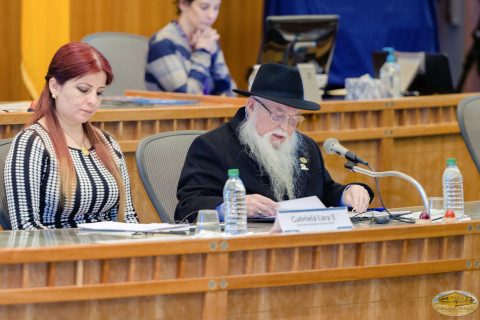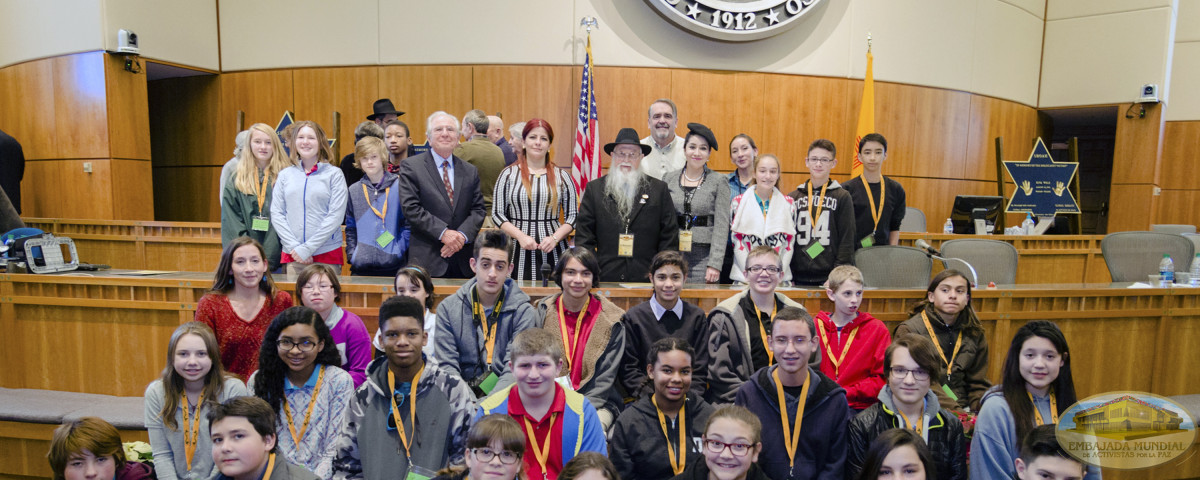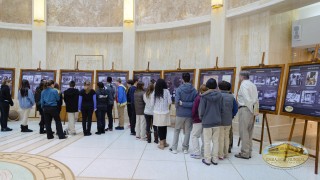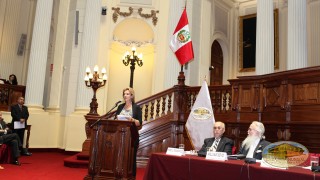The history of the survivors of the Holocaust is a “Living” lesson at the Capitol of Santa Fe – New Mexico
“We honor the courage, hope, and perseverance as a lesson for mankind”, was how the event concluded.
The project “Traces to Remember”, with the support of the authorities of New Mexico, honored the life of four Holocaust survivors on December 8, 2016, at the Capitol of Santa Fe, New Mexico, United States. The event counted with the participation of the Holocaust Museum, the Arlington Chamber of Commerce, the University of New Mexico, the Jewish Center of Santa Fe, the Jewish Historical Society of New Mexico and students from the Montessori Middle School.
The lectures revolved on a vision of progress when facing challengers and the understanding that the Holocaust must be seen as more than a tragedy of the past, but as a living testimony of a history, filled with valuable teachings and lessons for present and future generations, on the need to break the silence and counteract antisemitism, intolerance, prejudice, hate, and discrimination.

The executive president of the GEAP, Dr. William Soto, stated that by taking a position of hope and of teaching these events that happened during the Holocaust, an education in values becomes a need for schools, colleges, and universities.
And he said: “If we consider the teaching of basic science and humanities important for the formation of a child, how much more important is it to educate in the respect for human values and the teaching of the Holocaust as a paradigm of the act of genocide, since it gives us the necessary tools to transmit respect for human dignity as a foundation for a peaceful coexistence among individuals, societies, and nations.”
To say that a genocide such as the Holocaust will never happen again is a grave mistake.
The lives of Evy Woods, Riva Wolf, and Mr. and Mrs. Limanovich, survivors of the greatest manifestation of intolerance, hate, and discrimination in the history of mankind, were honored in three commemorative plaques, in the form of the Star of David.
In their participation, they had the opportunity to share with the guests their life history and the current perception of what the Holocaust meant.
“The challenges of war obligated us to grow up quickly. My childhood ended in 1941 when I was 8 years old. At a young age we learned to appreciate life. You think of a number: six million. Think of a young girl, lost and alone, running from her death. Think of a mother who has to decide which of her children she can save.” – Asya Limanovich

“When we take humanity away from a group because of their race or any other reason, we are allowing atrocities to be made.” – Michael Limanovich
“In 1940, things in France, in Paris, were not that good. And they were worried about the possibility of Paris being bombed and other things. In that time, my father was a Rabbi and was very religious, but not publically… It was not like today, where we have different types of religions.” – Riva Wolf.
“I know that my father had to slap me various times in order for me to memorize m new name. When we had to hide, or after that point, I was no longer Evy Goldstein, I became Eva Holstein.” – Evy Woods.
The teaching of the Holocaust is currently a legitimate tool, recommended by the United Nations through UNESCO, and used to denounce and prevent antisemitism, racism, discrimination and violent actions from extremists groups such as the Neo-Nazis.


